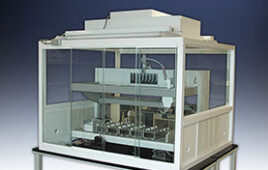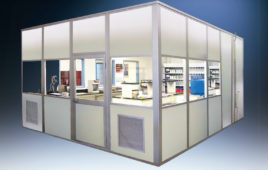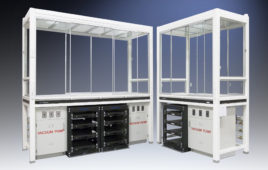Nice teams mistakenly believe that playing nice is what cooperation and teamwork are all about. They believe that getting along requires people to be nice to each other—all the time. They collectively believe the seven most common myths about nice teamwork.
In his book Nice Teams Finish Last, Brian Cole Miller offer myths and truths about unexamined “niceness” in the workplace.
Myth 1: We only praise each other, and we do it often! We have nothing but positive, uplifting things to say to each other. We don’t waste time and energy criticizing each other or finding fault. Constructive feedback and developmental feedback are negative, and we don’t need that stuff pulling us down.
The Sad Truth: We really share only part of the story with each other. Our praise is usually vague and insincere. It consists of hollow platitudes and can even come off as dismissive. Constructive or negative comments are saved for private conversations far from the earshot of the person we’re discussing.
Myth 2: We stay focused on the task and don’t get sidetracked by talking about things that aren’t directly related to the task that needs to get done! Positive and optimistic, we come to agreement quickly and efficiently. We don’t let negative thinking get us down. We are quick to take action!
The Sad Truth: We really don’t plan well. We take action before we really think things through. We neglect contingency planning, assuming our course of action will work every time. We get caught up in groupthink and discourage differing opinions. We celebrate those with similar thoughts, approaches, and styles, thereby maintaining an environment that is far from diverse or inclusive.
Myth 3: Our clients love us because we always find a way to say “yes!” We’re not here to say “no” to them. It may be tough, but we’ll find a way to include everyone’s request on our master work plan. We’ll do anything to keep them happy!
The Sad Truth: We really say “yes” to everyone because we are afraid to say “no.” We haven’t done the real work to get everyone in the team on the same page with our mission, vision, and strategy. As a result, we can’t expect them to weigh an incoming request against our purpose and plans and make an intelligent decision.
Myth 4: We respect each other and the strengths each team member brings to the team! As acknowledged professionals, we don’t doubt, challenge, or second-guess each other. Our leader is especially revered and respected. When our team leader makes a decision, we are saved the time and trouble of working out which way to go.
The Sad Truth: We really defer tough team decisions to our leader or to someone equally “deserving.” Deference allows us to avoid having to wrestle with each other. We each put in our opinions without debate, and then look to our leader to choose, or we defer team decision making to a team member who is deserving. A pecking order influences decision making. Team members who are closest to an issue or the most vested have more say than the rest of us. Those new to the team and those with lower positions in the organization have less say, regardless of their expertise or qualifications.
Myth 5: We refrain from unnecessary conflict and confrontation! There’s no place here for fighting and arguing. We get along well, and we all play NICEly together. Everyone likes each other and cooperates for the good of the team!
The Sad Truth: We really avoid all conflict and confrontation–even the necessary stuff. We sweep things under the rug so that we don’t have to deal with the difficult stuff. We gloss over real problems. No one points out any elephants in the room. We don’t deal with anything directly. We deal indirectly by pulling another person into our conflict, and we expect that person to negotiate some kind of resolution for us–without our having to do the work. We don’t debate or even explore possibilities: We just talk around things. If a team member is brave enough to object to something, everyone else backs off the current position. The objection is not explored; it’s accepted immediately and without question. Or it’s countered with another statement that is then accepted immediately.
Myth 6: We are open and flexible and freewheeling! We are always open to new information whenever it is available. We don’t allow ourselves to be tied to agendas and timelines in meetings. We don’t bind each other with roles and responsibilities but remain flexible in how each of us approaches work.
The Sad Truth: We really only rarely make any real decisions. Each time we get close to a decision, we can get sidetracked easily by just about anyone or anything. Meetings drag on as we get caught up in tangents. When we do make a decision, it is always subject to revision when more information is available or when someone decides (later) to consider a new perspective.
Myth 7: We are efficient! We don’t waste time talking about feelings and emotions. We focus on the task, not on each other. When interpersonal relationship issues come up, we move to resolve them as quickly as possible so that they don’t get in the way of the real work we’re doing.
The Sad Truth: We really just brush over real interpersonal problems in the name of efficiency. When team members try to address interpersonal issues, the rest of us hush them with a desire to stay focused on the task at hand or to use our time most efficiently—on the work, not on relationships. All of a sudden, we violate our attachment to Myth 6, and the agenda becomes paramount. We have no time for so-called tangents, we must now stay within our time constraints. We expect relationships to take care of themselves. After all, how can there be any serious issues when everyone is so NICE to each other?
From: Nice Teams Finish Last by Brian Cole Miller. Copyright 2010, Brian Cole Miller, 2010. Published by AMACOM, American Management Association. www.amacombooks.org




